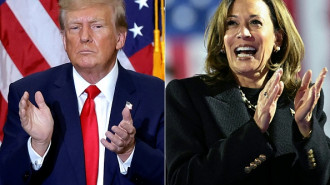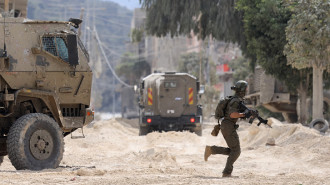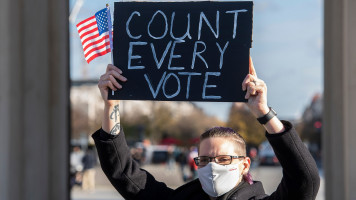Hariri demands 'justice' at UN tribunal for 2005 killing of his father
Saad Hariri was in court in The Netherlands as closing arguments began in the trial in absentia of four Hizballah suspects over the attack that changed the face of the Middle East.
Prosecutors said the suicide bomb, which also killed 21 other people and wounded 226, was a deliberate attempt to create "horror" and that billionaire former premier Rafiq Hariri was assassinated because he opposed Syrian control of Lebanon.
"There is no doubt that this day is difficult for me, as the son of Rafiq Hariri," Hariri told reporters outside the Special Tribunal for Lebanon in Leidschendam, a suburb of The Hague.
"From the start, we demanded justice because we believe that justice and the truth protect Lebanon," added Hariri, recently designated for a third term as prime minister.
The tribunal is unique in international justice because it is trying the four suspects despite the fact that they are not present, as Hizballah has refused to hand them over.
Twitter Post
|
They have been on trial since 2014 accused of core roles in the Valentine's Day attack on Beirut's waterfront targeting Hariri, Lebanon's Sunni Muslim prime minister until his resignation in October 2004.
'Darkness and horror'
Salim Ayyash, 50, is accused of leading the team that carried out the attack. Assad Sabra, 41, and Hussein Oneissi, 41, allegedly sent a fake video to the Al Jazeera news channel claiming responsibility on behalf of a made-up group. Hassan Habib Merhi, 52, is accused of general involvement in the plot.
The alleged mastermind, Hizballah commander Mustafa Badreddine, was indicted by the court but is now believed to have died while fighting with the Syrian regime in May 2016.
Hizballah chief Hassan Nasrallah has refused to hand over the suspects and warned the tribunal "don't play with fire".
 |
The alleged mastermind, Hizballah commander Mustafa Badreddine, was indicted by the court but is now believed to have died while fighting with the Syrian regime in May 2016 |  |
Prosecutors said their case - which relies on mobile phone records allegedly showing the suspects conducting intense surveillance of Hariri from just after his resignation until minutes before the blast - was "circumstantial" but "compelling".
Prosecuting counsel Nigel Povoas said the huge scale of the attack "undoubtedly had a political purpose" linked to Hariri's opposition to Damascus' long involvement in his country.
"The scene was plunged into darkness and horror, cars were eviscerated, incinerated and on fire, people were on fire. Lebanon itself was plunged into darkness and horror, that was exactly what was intended by the attack," he told the court.
"Hariri was perceived by those who supported Syrian control as a severe threat to their interests and security, a proxy of the West. This is the reason, the non-personal motive, behind the crime."
Twitter Post
|
Prosecutors said the suspects had been feted in Tehran and Damascus, Hizballah's backers.
'Huge problem'
As it was, the bombing had the opposite effect - triggering a wave of mass demonstrations that ended with the departure of Syrian forces from Lebanon after a 30-year presence, after which Saad Hariri became premier.
The younger Hariri agreed Syria was a factor but insisted he would not seek revenge when the verdict is announced, most likely early next year.
"Regarding the Syrian regime, I have no doubt that it had a huge problem with martyr Pprime Minister Rafiq Hariri. I want to deal with this issue as a responsible official who has the responsibility to protect the country and the Lebanese people," he told journalists outside the heavily secured court.
Saad Hariri is about to start his third term in office after a turbulent patch in late 2017, when he announced his surprise resignation during a trip to Saudi Arabia - which he then rescinded.
The absence of the defendants has raised questions about the court's credibility, while the gap of 13 years since the attack has caused doubts about its relevance in a region transformed by the war in Syria.





 Follow the Middle East's top stories in English at The New Arab on Google News
Follow the Middle East's top stories in English at The New Arab on Google News


